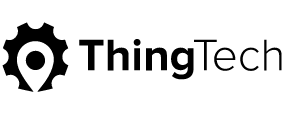Why Companies Like ThingTech are Creating the Chief Solutions Officer Role
The CSO role gives organizations an agile ability to deliver B2B technology solutions to its clients and put them on a faster path to digital transformation.

As business and technology continues to evolve, so does organizational hierarchies, roles and responsibilities. The latest wave of change brings product and account management into alignment with the role of Chief Solutions Officer (CSO), whose job is making sure clients get full value from their technology deployments. Companies like Google, Alight, Snapchat, and Dow Jones have all recently added a CSO to tackle problems around corporate development. ThingTech has followed suit by creating this new position and appointing its co-founder Brian Corcoran to the role. Corcoran and his team will be responsible for the creation and delivery of ThingTech solutions, generating new and innovative functions and capabilities, ensuring customers achieve the best business outcomes. Ultimately this role includes traditional product management functions and overall responsibility for our solution design, roadmap, release schedule, competitive positioning and solution engineering functions to support the sales and account management teams.
Since closing its Series A Round, ThingTech has looked forward to scaling from startup to early growth company, and disrupting the enterprise asset intelligence industry with a best-in-class Industrial IoT platform and product suite. It’s clear that as ThingTech grows, its clients must too [through its ThingTech deployments], which is a strong indicator of customer success. Doubling down on ThingTech’s promise to always provide a robust solution with extensive functionality and integration, Corcoran is focused on meeting market demand without sacrificing quality of service.
“I am excited to officially step into this role. As a co-founder of the solution I am incredibly invested in ensuring that we exceed the needs of our customers and continue outperforming our competitors,” said Corcoran. “So far, we’ve experienced really consistent growth and rapid new account procurement. It’s very important that as we bridge the gap and converge from startup to early growth that we continue to collaborate with our customers and keep our plans aligned with theirs.”
While digital business strategies increase in complexity, the need for a more developed human side of technology has driven the emergence of a Chief Solutions Officer. Customers don’t evaluate brands solely based on product, but on overall experience, interactions, human touch, and of course how the product offerings stack up against other best-in-class options. For technical improvements that are accompanied by new systems or product offerings, human touch ultimately determines their success or failure. Companies applying the principles of behavioral economics outperform their peers by 85 percent in sales growth and more than 25 percent in gross margin, according to Gallup Research. While the role of CSO is fairly new as well as uncommon, it is very quickly becoming a must have for any organization with a “customer first” mentality embedded in their culture.

